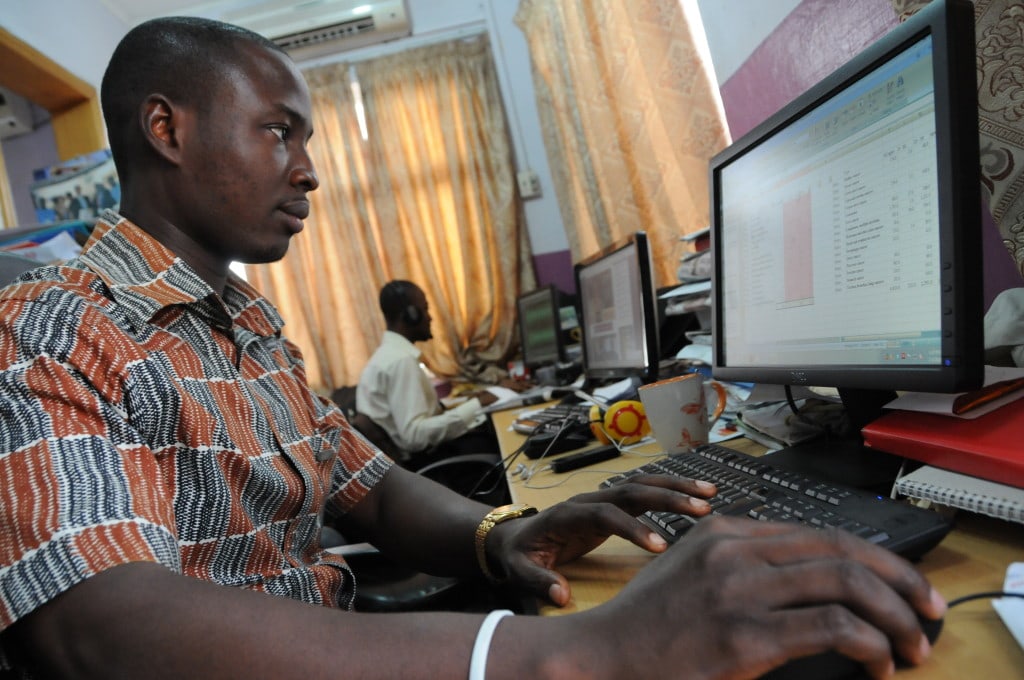Ask a Ghanaian about water and electricity service, and you’ll get an earful. But ask 1000 people from across the country, and you have more than enough voices to cause the government to change its course.
For three years, water and electricity rates in Ghana were steady. But near the end of 2013, the government abruptly announced big increases: water rates would rise by 52 percent, and the price of electricity would go up by 79 percent.
The announcement caused sparked strikes, protests, and dozens of complaints to radio call-in shows. The issue was clearly a growing public concern. And journalists working with JHR at Citi FM in Accra wanted to get a national perspective. “Tariffs affect everybody but within all that confusion, we don’t really know what people think,” said Bernard Avle, news director for Citi FM.
Using an SMS technology developed by VOTO Mobile, Citi FM sent out a voice poll to random cell phone numbers across the country. The goal was to find out what the population was thinking, soliciting opinions from all Ghanaians: urban and rural, male and female, rich and poor. The poll and resulting newspaper and radio coverage kicked the national conversation into high-gear. Eventually, in the face of massive popular opposition, the government relented and announced that electricity rates would only rise by 55 percent – a significant drop from the proposed 79 percent hike. “It’s really important that it represents average Ghanaians, not just a vocal subsect,” said Caroline Condon, a staff member at VOTO. Condon explained that the response rate for the two polls – one on electricity and one on water – was astounding. More people agreed to participate than she’s seen before in a similar survey, and fewer people dropped off as the survey went through all nine questions. “It had been in the news so people had been hearing about it probably that day, and then they got a call asking their opinion about it,” she said, adding that the survey was developed within two weeks of the story hitting the news.
Martin Asiedu-Dartey, the editor of the Weekend Globe and the author of the front page story, said the poll provided access to populations that would never have had a voice in a story compiled by traditional journalism. “Thanks to VOTO we got responses from across the country, because this is a national issue,” he said. “If we had done it the usual way we would have just worked within the catchment area of the station.” He added that the results of the large-scale survey were surprising. More than half of respondents said they would be willing to pay more if they could be guaranteed that service would improve – a number that became the lead of the news story.
“If we had used the regular way of getting public views, either through call in segments on Citi FM and going around to talk to people, I’m not sure we could have gotten people to say what they said. The numbers would have been smaller and we wouldn’t have gotten a national perspective.” He said the approach was part of a plan to find ways to make Citi FM’s reporting more reliable, broad, and creative. “It’s a new form of journalism we’re really excited about,” he said. “We’re looking forward to doing a lot more.”



